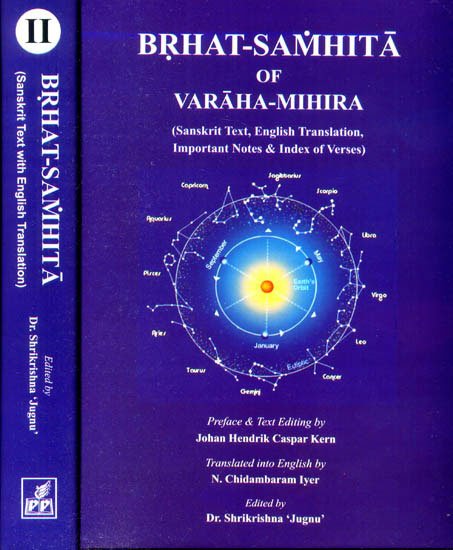Brihat Samhita
by N. Chidambaram Iyer | 1884 | 135,584 words | ISBN-13: 9788171104215
This page describes thunderbolts which is the thirty-ninth Chapter of the English translation of the Brihat-samhita. This work, written by Varahamihira in the 6th century, is classified as jyotisha literature, also known as Indian astronomy. It contains however, also content regarding astrology, palmistry, agriculture, gardening, perfumes, medicines and various other encyclopedic topics.
Chapter 39 - On Thunderbolts
[Sanskrit text for this chapter is available]
1. When two winds come in collision, that which, being struck, falls on the Earth is known as thunderbolt; if at the time birds should begin to sound turning to the Sun there will be misery on Earth.
2. If there should occur a fall of thunderbolt at sunrise, officials, kings, rich men, soldiers, women, merchants and prostitutes will perish; if the fall should occur within three hours after sunrise, sheep, the Śūdras and citizens will suffer.
3. If the fall should occur before midday, the king’s servants and Brāhmaṇas will suffer; if it should occur within three hours after midday, the Vaiśyas and clouds will suffer, and if before sunset, thieves will suffer.
4. If the fall of thunderbolt should occur at sunset, low caste men will suffer; if it should occur in the first three hours after sunset, crops will suffer; and if before midnight, ghosts will suffer.
5. If the fall of the thunderbolt should occur within the three hours after midnight, horses and elephants will perish; and if before sunrise, travellers will suffer, and also those countries will suffer in the direction of which the roar of thunder appears to move.
